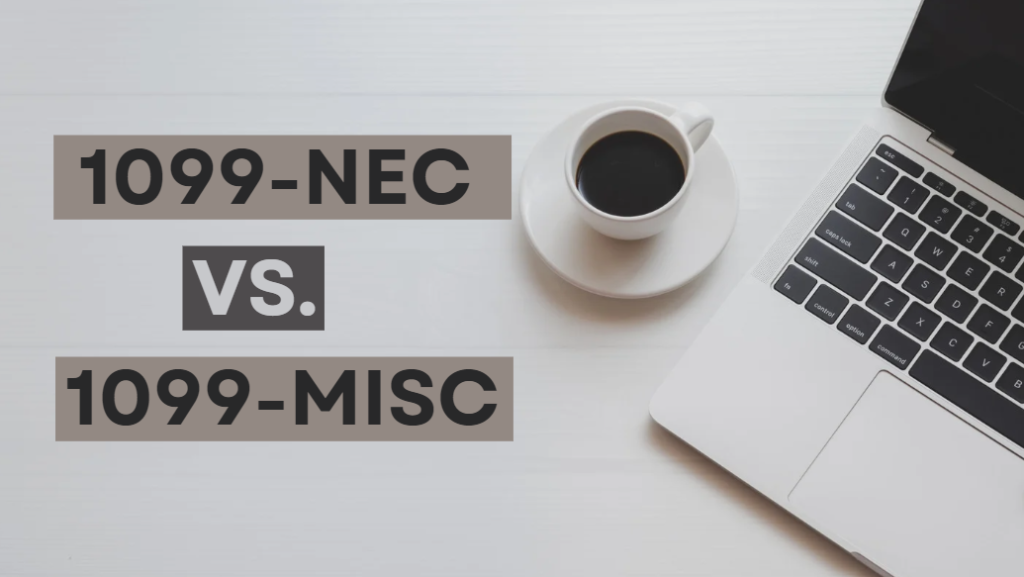Two key players in the world of tax reporting are the 1099-NEC and 1099-MISC. There are subtle distinctions between these forms, read through and you will be able to determine the most fitting choice for your financial transactions.
Difference between 1099-NEC vs. 1099-MISC
In the realm of tax reporting, clarity is key. Let’s begin by breaking down the fundamental differences between the 1099-NEC and 1099-MISC.
1099-NEC:
The 1099-NEC, or Nonemployee Compensation, is tailored for reporting payments made to individuals or businesses providing services as nonemployees. This can encompass freelancers, consultants, and independent contractors. Any payment exceeding $600 during the tax year requires the issuance of a 1099-NEC.
1099-MISC:
Once a catch-all form for miscellaneous income, the 1099-MISC has undergone changes in recent years. As of tax year 2020, the 1099-MISC is now primarily reserved for reporting rents, royalties, prizes and rewards, Medical payments, payment to the attorney, Crop Insurance payment, and many other miscellaneous income. Notably, it no longer includes nonemployee compensation, thanks to the introduction of the 1099-NEC.
Reporting Thresholds
Both forms come with specific reporting thresholds that trigger the requirement for issuing these documents.
1099-NEC:
Businesses are mandated to issue a 1099-NEC for any nonemployee who received $600 or more in compensation during the tax year. This threshold ensures that substantial nonemployee income is properly documented for tax purposes.
It’s crucial to emphasize that filing a 1099-NEC is not required if the independent contractor is registered as a C corporation or S corporation. Verification of this information can be obtained by referring to the contractor’s Form W-9.
1099-MISC:
Payments exceeding $600 within a tax year necessitate businesses to file a Form 1099-MISC when remunerating individuals or LLCs for services like rent, legal settlements, or winnings from prizes or awards.
While the typical reporting threshold for various income types on the 1099-MISC is $600, certain exceptions apply. Notably, rents and attorney fees share this $600 threshold, whereas fishing boat proceeds have a lower threshold of $200.
Filing Deadlines
Both Forms: Businesses must provide copies of the respective forms to recipients by January 31 of the following tax year. Additionally, copies must be submitted to the IRS by the end of February if filing on paper or by March 31 if filing electronically.
For more info, book a consultation with us at www.qbtconsulting.com, and make sure to stay up to date with latest news on our blog.


